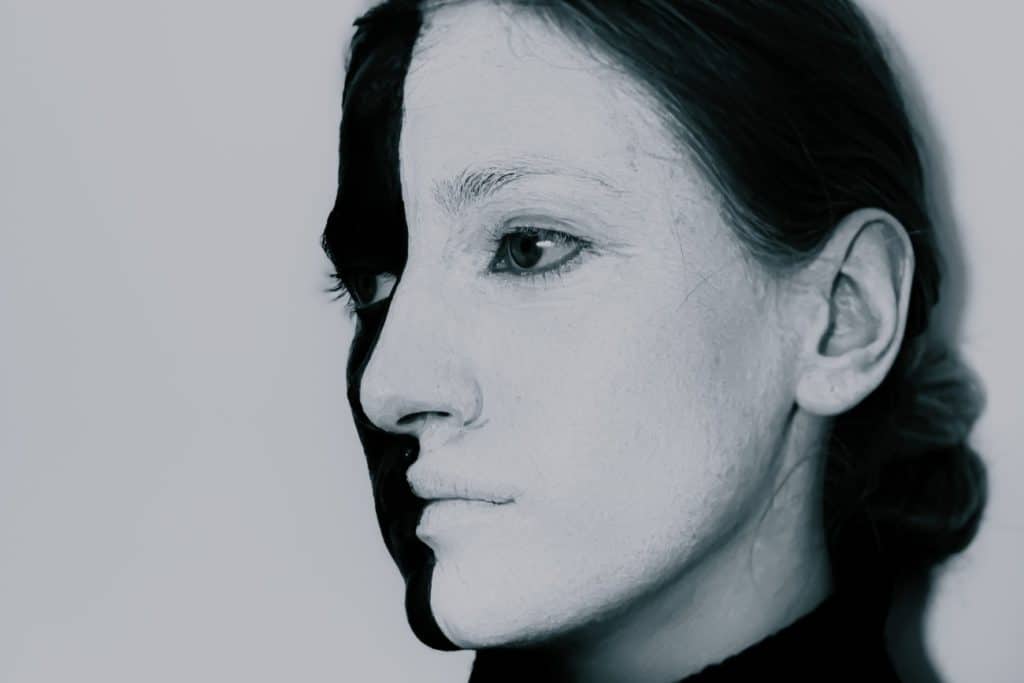Bipolar disorder is a mood disorder and a serious mental health condition that can present with manic or depressive episodes. Episodes can switch from manic—commonly referred to as mania—to depressive and vice versa. The switching can happen without notice, causing chaotic challenges to the patient, their loved ones, and their practitioners.
Formerly called manic depression, bipolar disorder involves long periods in a depressive state where the individual feels empty, apathetic, and has little energy. Coupled with extreme bouts of mania, the patient has quite a challenge managing their life. This article will provide more information on this arduous disorder and the importance of ongoing treatments, including medication and psychotherapy.
Associated Manic and Depressive Episodes
“The mania is like wasps under the skin, like my head’s going to explode with ideas. ~ Alice Weaver Flaherty. The highs of mania can be extensive. They may present higher mental and physical energy levels, an elevated state of alertness, and moments of clarity. One minute a person feels happy and on top of the world but then plummets into a depressive episode.
Depression may last for weeks. A person may also experience manic symptoms and impulsivity during a depressive episode. Research indicates impulsivity can trigger dangerous outcomes such as alcohol and substance abuse and suicide attempts.
Bipolar Disorder: Types I and II
The most common type of bipolar I disorder. Predictors of this level are the onset of severe and lengthy depression and psychosis. Psychosis may manifest in various ways, including the patient experiencing hallucinatory thoughts, inability to pay attention, withdrawal from family or friends, and a decreased interest in self-care.
Bipolar II disorder predictors include emotional lability, which is the occurrence of mood exaggerations such as uncontrollable crying. Psychosocial functioning is disrupted, causing impaired cognition and lengthy mood swings. There may also be an increase in substance abuse. The possibility of suicide attempts exists in type I and type II, but neither to a significantly higher degree.
A significant mortality risk for attempting suicide exists, with over 25% of patients attempting suicide and 11% committing suicide. The numbers are for known patients, but it is unknown how many undiagnosed people attempt or complete suicide. Bipolar disorder is a serious health problem that requires treatment through medicine and therapies for coping with a lifelong condition.
What Causes Bipolar Disorder?
Although there is no exacting cause of bipolar disorder, several factors influence a person’s chances of developing it. The following can play a part in causing bipolar disorder:
- Physical
- Social
- Environmental
- Genetic
Chemical imbalances in the brain may affect the disorder, too. Neurotransmitters include noradrenaline, dopamine, and serotonin and control the brain’s functions. An imbalance of one or more of the neurotransmitters may result in the development of bipolar disorder symptoms.
People typically develop bipolar disorder in their late teens or young adult years. However, children and adults are susceptible to the disorder; it’s just not as prevalent. Interestingly, the disorder usually persists during the affected person’s entire life. Other factors believed to play a role in developing bipolar disorder are listed below:
- An extremely stressful event in someone’s life
- Disparities in the brain’s structure and function
- A chronic ear infection
- Exposure to drugs during pregnancy
- Heavy metal exposure
Co-occurring Disorders
Depressive disorders usually present with other disorders. Alcohol and substance abuse frequently arise from depressive symptoms. Substance use can induce bipolar episodes, especially depressive episodes. Stress and anxiety accompany and exacerbate depressive disorders. Additionally, bipolar disorder often occurs with other mood disorders and attention-deficit/hyperactivity disorder (ADHD) in adults. Treatment for all occurring disorders is applied within an integrated treatment pl.
Treatment Options
Medication and psychotherapy are the two main treatments for bipolar disorder. A person diagnosed with bipolar disorder must adhere to a medication and treatment plan. Denying or skipping treatment may lead to severe life imbalances, relationship issues, and a general inability to navigate one’s daily life. Alcohol and substance use disorders must be addressed, too, because of their ill effects on bipolar disorder and its symptoms.
Additionally, uncovering co-occurring disorders is paramount to the success of the treatment plan, as treatment will take place simultaneously and be ongoing. Cognitive-behavioral therapy (CBT) is often used with many disorders and is considered an effective therapy for bipolar disorder. Acceptance and commitment therapy (ACT) teaches people how to change their thoughts about pain. ACT and CBT are effective and work together to help people with bipolar disorder accept and embrace the journey ahead of them.
If you or a loved one are experiencing depressive symptoms that persist longer than normal, see your doctor or therapist, or seek other professional advice. Most people who are depressed do not realize what kind of depression it is, and if left untreated, they could experience worsening symptoms and challenges.
We are committed to treating mental health challenges and addiction at SoCal Mental Health. Some mental health disorders are more severe than others, but all deserve compassionate professional treatment and support. Our addiction treatment and mental health programs are designed for your individual needs, creating the most effective plans for each person. If you feel overwhelmed or out of control due to mental health distress or alcohol or substance dependence, know that we can help. Our professional and support staff are here to meet your needs, whether for mental health, substance abuse recovery, relapse, or other addictive struggles. You do not have to go through this alone. Call us at (949) 502-2041 for help.












